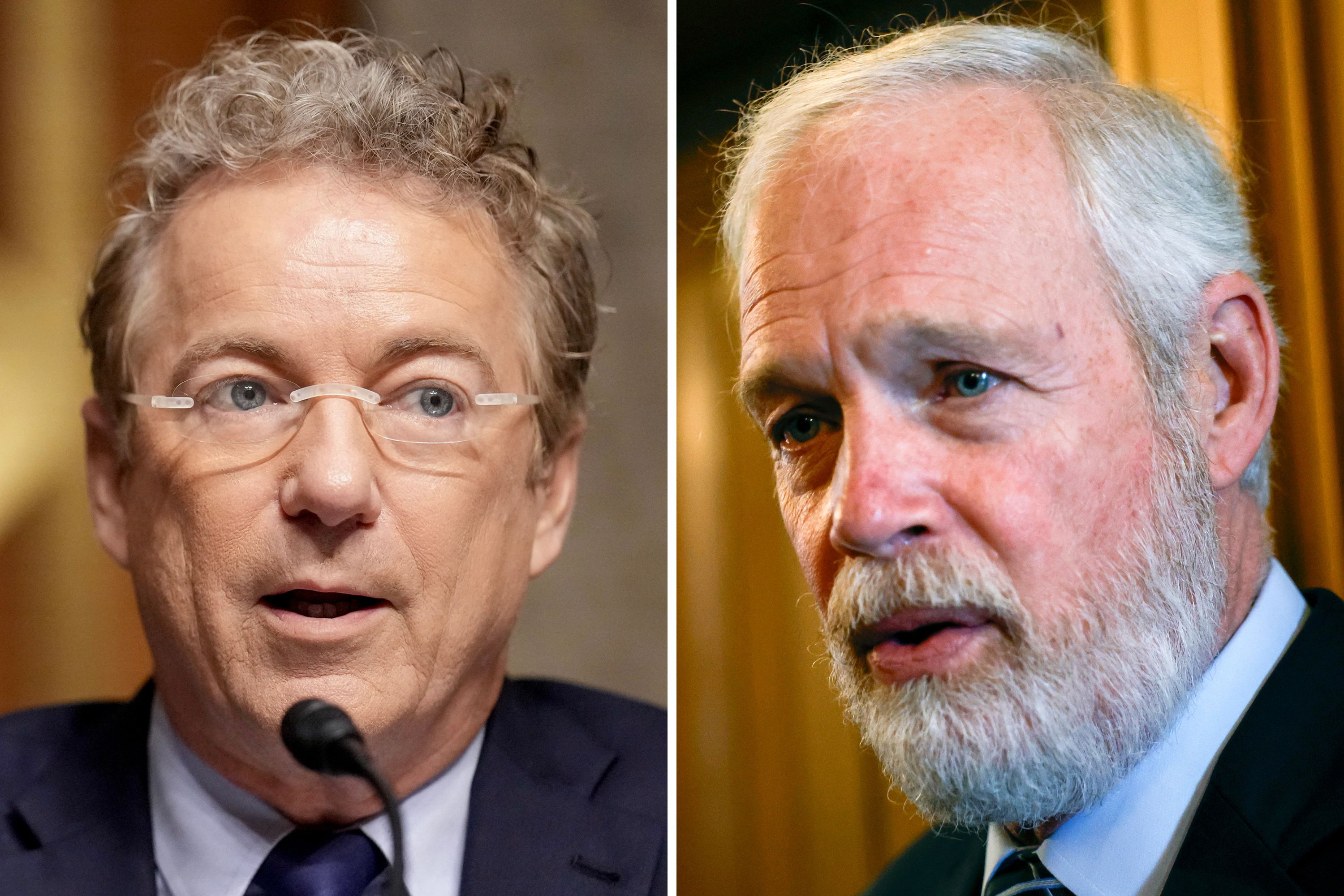🎙️ Voice is AI-generated. Inconsistencies may occur.
President Donald Trump’s “One Big Beautiful Bill” is advancing to the Senate, where several Republican lawmakers have expressed reservations about or outright opposition to the legislation.
Republicans hold a slim majority in the upper chamber, with 53 senators to the 47 who caucus with the Democrats. If all Democratic senators vote against the bill, as is expected, it will take only a handful of GOP rebels to defeat it.
Some Republican senators have cited concerns over general fiscal responsibility and specific policy provisions in the bill.
On Tuesday, tech billionaire Elon Musk, who recently left his role as the head of Trump’s Department of Government Efficiency, described the bill as “a disgusting abomination,” arguing that it would impose “crushingly unsustainable debt” on the American people.
Below is a list of Senate Republicans who have expressed concerns about or outright opposition to the president’s spending bill.
Newsweek contacted the listed senators for comment via email or telephone and voicemail message on Wednesday outside regular office hours.
1. Senator Rand Paul of Kentucky
- Stance: Opposed
- Concerns: Paul has criticized the bill for its projected increase in the nation’s debt, saying it would lead to an unprecedented rise and shouldn’t be considered fiscally prudent. He has called for the removal of the debt ceiling increase component to gain his support.
- Statements: On Tuesday, Paul wrote on X, formerly Twitter: “The math doesn’t add up. I’m not supporting a bill that increases the debt by $5T. I refuse to support maintaining Biden spending levels.”
On his Truth Social website, Trump shot back: “Rand votes NO on everything, but never has any practical or constructive ideas. His ideas are actually crazy (losers!). The people of Kentucky can’t stand him. This is a BIG GROWTH BILL!”
2. Senator Ron Johnson of Wisconsin
- Stance: Opposed
- Concerns: Johnson has advocated for a return to pre-pandemic spending levels, meaning substantial government spending cuts. He believes the bill lacks serious deficit reduction measures.
- Statements: Speaking to Semafor, Johnson said: “Right now, the ‘big, beautiful bill’? That’s just rhetoric. It’s completely false advertising. It’s literally divorced from reality.” He continued: “We’re currently projecting $2.2 trillion. … Obama is under a trillion. Trump had increased it, Biden increased dramatically. Trump’s not doing anything to fix that.”
3. Senator Rick Scott of Florida
- Stance: Opposed
- Concerns: Scott has called for more substantial budget cuts to restore “fiscal sanity,” criticizing the bill for not going far enough in reducing spending. He has also emphasized the urgency of addressing the escalating national debt.
- Statements: Speaking on Fox Business’ Mornings With Maria, Scott said he was a “no” on the bill. He added: “We’re running $2 trillion deficits. If we follow the path of the House bill, we’ll have close to, I think, $60 trillion worth of debt in 10 years.”
Eric Thayer/Anna Moneymaker/GETTY
4. Senator Mike Lee of Utah
- Stance: Opposed
- Concerns: Lee has joined his colleagues in pushing for deeper spending cuts, expressing dissatisfaction with the bill’s fiscal approach.
- Statements: On The Charlie Kirk Show, Lee said he would not support the “big, beautiful bill” in its current form.
5. Senator Josh Hawley of Missouri
- Stance: Critical
- Concerns: Hawley has raised concerns about the bill’s proposed Medicaid cuts, arguing that it’s unjust to target the working poor. He has warned that such cuts could be politically detrimental.
- Statements: Referring to the prospect of sweeping Medicaid cuts, Hawley told The Independent: “I’m very worried about that. I won’t vote for that.”
6. Senator Susan Collins of Maine
- Stance: Undecided
- Concerns: Collins has expressed reservations about the bill’s potential effects on Medicaid and renewable energy tax credits, indicating that these issues could influence her vote.
- Statements: “The House bill tries to thread the needle,” Collins said, per WMTW. “I’m not certain that they succeeded, but I’m still looking at the specifics.”
7. Senator Lisa Murkowski of Alaska
- Stance: Undecided
- Concerns: Murkowski has also shared concerns regarding Medicaid and the renewable energy provisions in the bill.
8. Senator Joni Ernst of Iowa
- Stance: Critical
- Concerns: Ernst has criticized the bill’s potential effects on Medicaid spending, suggesting that targeting the working poor is unjust and could be politically damaging.
9. Senator John Curtis of Utah
- Stance: Undecided
- Concerns: Curtis has expressed concerns over the bill’s elimination of green energy tax credits, indicating that this could affect his support.
- Statements: Speaking with Deseret News, Curtis said, “I’ll make sure that we’re taking into account our energy future.”
10. Senator Thom Tillis of North Carolina
- Stance: Undecided
- Concerns: Tillis has raised issues regarding the bill’s potential effects on Medicaid and renewable energy incentives, suggesting that these factors are under consideration in his decision-making process.
- Statements: In May, Tillis—along with Curtis, Murkowski and Senator Jerry Moran of Kansas—wrote to the Senate majority leader to “emphasize the importance of maintaining a stable and predictable tax framework to promote domestic energy development.”
Given the Republican Party’s narrow majority in the Senate, even a few defections could jeopardize the bill’s passage. Senate Majority Leader John Thune faces the challenge of addressing these concerns to unify the party and advance the legislation to the president’s desk.















